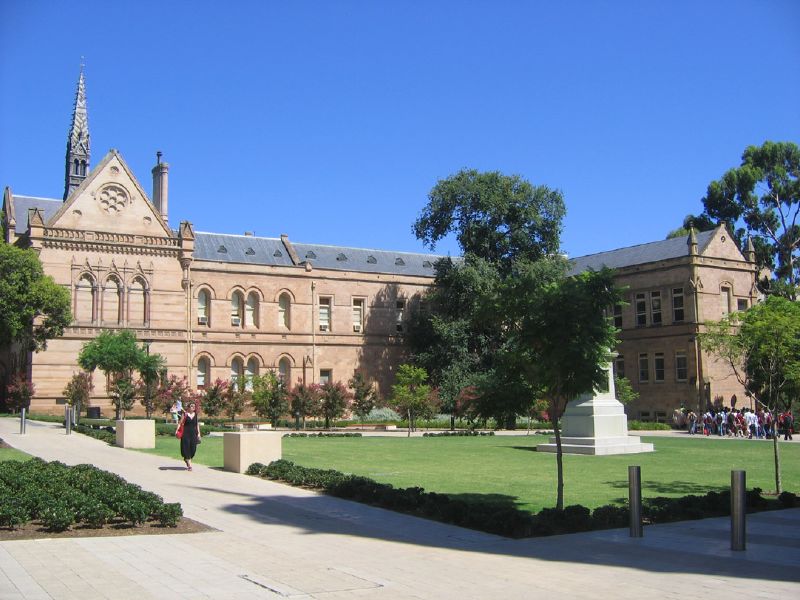Transforming the Student Learning Experience with Video and Active Learning at The University of Adelaide

For The University of Adelaide, EchoVideo is more than just a lecture capture system. It is part of the overall Echosystem that more easily enables lecturers to offer learning experiences that are, in the words of Travis Cox, Director of Learning Enhancement and Innovation “more than one-hour transcribing sessions.”
Study after study reinforces that the majority of students highly regard lecture capture for the opportunities it offers for review and follow-up and to catch a lecture they may have missed. In a survey at the University, 84% of students noted they accessed recordings on a weekly basis.
Attendance Increases When Students See Greater Value of the In-Class Experience
Unfortunately, with the benefits of lecture capture comes the assumption by some students that they don’t need to attend in person. Lecturers at the University have seen this behaviour as both feedback and an opportunity. They use the engagement tools in the Echosystem to be both more flexible in the teaching moment and to offer active learning experiences.
I spoke to some of the lecturers at The University of Adelaide about their experiences with the Echosystem helping them to engage more with their students and how, even in large classes, they were supporting students to become more responsible for their own learning.
For example, Dr. Mark Dodd noticed attendance dropped drastically in some classes over the years; sometimes as low as 30% by the end of the semester. Last year he was able to increase attendance to 90% through the semester by using a mixture of flipped learning and polling during his classes. Mark invited me into one of his Economics lectures where I saw firsthand the way students were interacting with the Echosystem. The anonymous functionality of the platform takes away the fear of being wrong in public and encourages students to participate knowing that they can get immediate feedback. Students are seeing greater value in their in-class experience and in particular the real-time intervention and the opportunities for interactive dialogue rather than simply a didactic transmission of information.
Addressing Student Misconceptions in Real-Time Yields Big Results
Dr. Cheryl Pope teaches Computer Science and she had noticed persistent misconceptions among the students even when sharing examples. “I really felt that having them actively participate in coming to the conclusions and discussing it with their peers would help them to overcome those misconceptions”, said Dr. Pope. She also feels that the Echosystem gives her a lot of feedback as to where her class is. “Especially in large classes where you can see a sea of faces, you can ask if there’s any questions and you get no hands but with the Echosystem the students do respond. I can see whether they understand it and we can go on or whether we need to stop and work on that concept some more.”
When asked about the content she misses by focusing on one topic for longer than planned she simply says, “the rest of the content that we would have covered during that lecture, I recorded and put it online for them. Students could either read the chapters in the book or watch the video content before the next lecture, and that worked fine.” By being able to immediately respond to the needs of the learners, Dr. Pope has seen “a big improvement in the exam results around those misconceptions that they had always gotten every year.”
One of the ways that her students surprised Dr. Pope was in the use of the Q+A feature.
“What I find in lectures, that I didn’t expect, was a lot of students would use the question-and-answer section to ask questions as the lecture went on. They didn’t want to stop the lecture but they were willing to ask the questions there. I went back through them and I found that a lot of the questions had already been answered by their peers as we went through the lecture.”
The Value of Active Learning Extends Beyond Math and Science to the Humanities
It’s not unusual to have the math and sciences lecturers jump into using the active features of the Echosystem. After all, one of the most quoted studies on active learning is the 2014 Freeman et al STEM paper showing that students achieved better results if involved in active learning.
However, at The University of Adelaide, Humanities lecturer, Dr. Joy McEntee has embraced the Echosystem in her English classes. Dr. McEntee was one of only 12 people from across Australia and New Zealand who recently won an Echo360 Champion grant. She uses the Echosystem when discussing adaptations of literature into film and the common misconception that is often overheard, ‘the book is better than the film’. Dr. McEntee has found that the anonymity of the Echosystem quizzes allows students to be honest and from there they can interrogate the concepts and come to some new shared understandings that form the basis of the ongoing conversations.
Dr. McEntee was first drawn to the Echosystem when her classes expanded from 30 to 130 and she found it more challenging to allow students to discuss things in small groups. Small group discussion is critical in the humanities as a way to reach shared understandings. It was also important to Dr. McEntee that she was able to ensure that the quieter students had a chance to have a voice. “Sometimes they’re sitting on gold and they don’t know it, so the minute they come through with that gold I can actually bring that out and say, ‘This was great’ and they get the affirmation and that might embolden them.”
Travis Cox notes that the added value for the University when lecturers use the Echosystem is the richness and the depth of the data that helps them to understand their students which really helps with the University’s evidence-informed teaching approach.
Learn more about the Echosystem, the world’s first Learning Transformation Platform.

